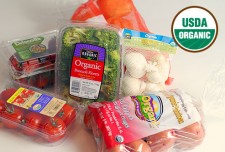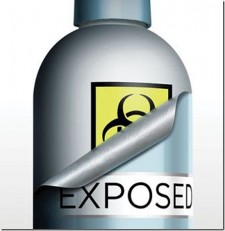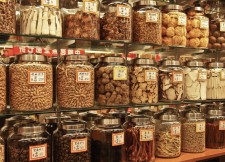
The push for clean living is on, and with good reason. There are so many benefits to cleansing your life and so many possibilities within it. If you find yourself feeling a bit confused however when it comes to what you should focus on in terms of organic, then you’re not alone. You may find that understanding when eating organic really counts tremendously.
You do need to be mindful that clean living is about getting all of the potential toxins out of your life. A big part of that is quitting bad habits such as smoking, but it goes much deeper than that. If you find yourself in a position to want to eat better, this can help you to eliminate some of the potential toxins right there. Clean living and eating well are very closely linked!
There Are Times When Organic Really Does Count
So this begs the question, when does eating organic really count? What sorts of foods do I really need to focus on in terms of their organic make up? If you shop at certain health food stores then you may find endless supplies of organic foods. Are they really all necessary? Chances are that you can focus and narrow your search to a few important foods before anything else.
The problem is that organic food can be very expensive, and so many people use this as a justification to stay away from it. If you start with the most important organic foods that can make for an easy way to get into this clean eating trend—and then you can expand from there. So many people find that starting with the “Dirty Dozen” list of foods can help them to really focus in on the foods that matter the most.
The “Dirty Dozen” list as it has come to be called really focuses on the foods that have the most potential for contamination. Due to pesticides and other harmful substances used in their growing and preparation stage, these foods have the most chance of containing high potential toxins.
The Dirty Dozen List To Know Well
The list is as follows:
- Peaches
- Apples
- Sweet Bell Peppers
- Celery
- Nectarines
- Strawberries
- Cherries
- Pears
- Grapes (Imported)
- Spinach
- Lettuce
- Potatoes
This doesn’t mean that you shouldn’t eat these foods, but these are the best foods to choose organic for. When you opt for organic that means that they are grown using certain standards that ensures that no potential toxins are present. That means that though you may pay a bit more, you can also feel safe in consuming them.
This List Can Offer a Springboard To Better Eating and Cleaner Living
Many who eat and enjoy organic food will tell you that they just taste better. They will say that the way that these foods are grown contributes to a fresher taste. What really matters here though is that these foods are better for you, and they offer much less of a risk than their counterparts that can be loaded with pesticides. This list of foods can offer a springboard by which you can learn to adapt to organic foods moving forward.
Eating organic is always a great choice, but may not be necessary in all cases. Consider these foods for example that are often grown in the ground where pesticides can become very concentrated. If the food is grown differently or if there is less risk of toxins being present, then you can safely choose a non-organic option. Use your best sense, but recognize that you may really enjoy how organic eating works for you.
Organic eating is of course a healthy option and contributes to clean living overall. Start with this list and then go from there, but know that you are contributing to better health every step of the way—and that what makes for a healthier and happier you!




